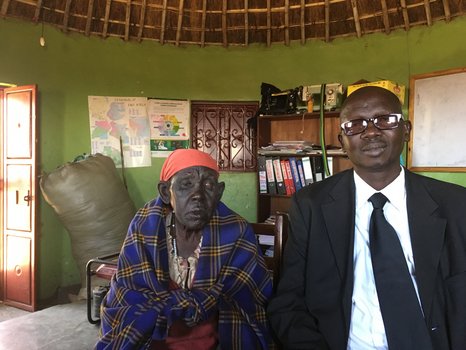
Mother and son in northern Uganda. Photo: Lotte Meinert
Lotte Meinert: Vulnerability and Wisdom in Inter-generational Situations of Hunger among Ik in Uganda
Aging among the indigenous Ik in Northern Uganda takes place in family houses; clay huts clustered together and protected by wooden stockades in the remote mountains. A good old age depends largely on generational dynamics and the availability of food and security. There are no formal institutions for the old and health care institutions are beyond the mobility range of most old people. Elders in the Ik community hold a precarious double position as the wisely powerful, while they are simultaneously extremely vulnerable in relation to hunger, illness, attacks from neighbouring groups, and migration. When their bodily strength decreases, elders become increasingly dependent on their intimate others, mainly in the younger generations, for food, care, building of huts and stockades, and other basic needs. In this gerontocratic age system, the younger generations are dependent on the elders' ritual initiation power to let the younger advance. This mutual dependency requires careful moral negotiation of inter-generational relations. Elders can withhold knowledge, ritual expertise and blessings. The younger can neglect to feed and care for the old, and can leave them behind when villages migrate or are being attacked by outsiders. The spread of democracy, humanitarian aid and Christianity influences inter-generational dependency and changes the moral landscape. This project builds on ethnography in the area for the last five years and explores Ik elders' experiences of vulnerability, wisdom and changes over time in inter-generational relations in a context of recurring hunger and insecurity as well as missionary and humanitarian work.